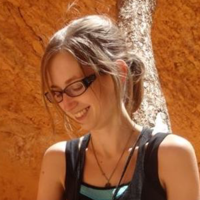Comments (2)

So is her name Hung or Liu?

We do our best to use images that are open source. If you feel we have used an image of yours inappropriately please let us know and we will fix it.
Our writing can be punchy but we do our level best to ensure the material is accurate. If you believe we have made a mistake, please let us know.
If you are planning to see an artwork, please keep in mind that while the art we cover is held in permanent collections, pieces are sometimes removed from display for renovation or traveling exhibitions.
February 17, 1948
Changchun, Manchukuo
August 07, 2021
Oakland, California, U.S.A.
Works by Hung Liu

Sr. Contributor
Hung Liu grew up under the Maoist regime in China and before her high school graduation, schools were closed down and all students were relocated to training centers. At the training centers, they were taught Mao’s communist ideology. For four years she worked in rice and wheat fields until recruiters from Beijing came to her village looking for students. Whenever she was able to find time, Liu had been studying art by sketching farmers who worked alongside her so her community recommended her for art school.
At Beijing Teachers College she was trained in the Socialist Realist style and her official assignments were limited to political projects. When one of her pieces was interpreted as resistant to the revolution she was severely criticized. But, a rebel at heart, this incident lit a fire within her. Wishing to study art outside of the strict regulations Liu began painting postcard-sized landscapes in secret. One done every day until she graduated, over 500 in total but sadly only thirty survive.
It was in 1984 that Hung Liu followed her desire to study in the United States and began an MFA program at the University of California at San Diego that her art world truly expanded. To the point of culture shock actually. She recalled that at first she had no idea what they were up to or trying to express, seeing work such as performance art of a woman shouting and crying.
One day her professor Allan Kaprow took his class to the junkyard and encouraged them to make art with whatever they found. Though she hesitated at first, she came to embrace the realization that art had no rules.
Now her work ranges from a giant pile of 205,000 fortune cookies poured over railroad tracks, a piece called Transformation to her series of paintings based on historical photographs with her trademark drip method, such as Loom.
One of her most well-known pieces is Resident Alien, in which she blows up her green card to a much larger scale with a few edits. Her name on the card reads “Cookie, Fortune”. This signature is brilliant as a piece of commentary with a lot to unpack, not the least of which being that Liu had done some research into the creation of the fortune cookie. She’d discovered they were invented by a Japanese man near Golden Gate Park for a tea garden catering to tourists. The misconception of them as a Chinese tradition has led to a fascination with them she’d explored in a number of her works. She says, “Over time I realized that I didn’t have to combine my Chinese past with my American identity. They could co-exist but the tension; the collision would always be there.”
Featured Content
Hung Liu (劉虹) (17 February 1948 – 7 August 2021) was a Chinese-born American contemporary artist. She was predominantly a painter, but also worked with mixed-media and site-specific installation and was also one of the first artists from China to establish a career in the United States.
A ten-year retrospective of Liu's work traveled nationally in the U.S. in 1998 and 1999. Summoning Ghosts: The Art of Hung Liu was a retrospective collection of Liu's work with paintings from more than 40 collections displayed.
Check out the full Wikipedia article about Hung Liu

So is her name Hung or Liu?
I can't belive she died